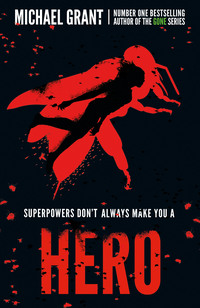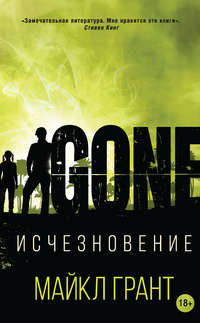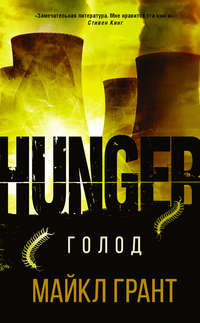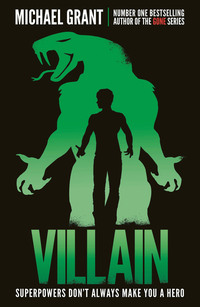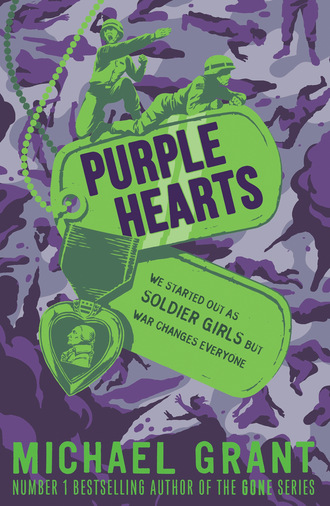
Полная версия
The Front Lines series
The next morning, chilled, aching and frowzy, they stop at a small café for coffee and croissants.
“The croissants are good,” Rainy observes, politely saying nothing about the coffee.
Marie says, “The coffee is merde. Chicory and roasted grain.”
“It’s hot,” Étienne says. “Coffee is not the highest priority.”
Rainy is not at all certain about that. She’d have paid a month’s salary—a hundred and fifty dollars—for a decent cup. But Étienne has been distant and defensive since the incident with his mistress or girlfriend or prostitute, whatever she was—his stories varied—and Rainy does not want to argue with him. He has not yet chosen to share with them the reason Marianne ended up chasing him down the street yelling that he was maquis.
The people who join Resistance groups and risk death are a mixed bag, according to Colonel Herkemeier’s briefing in London. Some are committed Communists. Some are followers of General DeGaulle’s Free French. Most joined the maquis only after the Germans began shipping French citizens off to forced labor in Germany. There are dozens of groups under dozens of leaders, some quietly effective, some noisily useless. All are brave, that at least is clear: only a very brave person defies the Nazis.
But as Rainy watches Étienne fuss with the croissant crumbs he’s scattered she knows that some are also informers working either for the Germans or the collaborationist traitors of the Vichy government.
“We should get going,” Marie says.
“In a minute,” Étienne answers. He has taken to overruling Marie on everything, asserting his now-questionable authority, though he has not yet challenged Rainy, who has carefully avoided antagonizing him. But his continued high-handedness is definitely getting on her nerves.
She tries to imagine a scenario in which Étienne is a traitor. Had he provoked Marianne into giving him up? Is she his contact with the Nazis? Had the two of them cooked up the little demonstration that had resulted in her death?
But why? Why not just walk in and tell the three SS men? Why the subterfuge?
Of course the answer is obvious: Marie. She is his sister after all, and he might not want her to know that he’s a traitor. He could stand her thinking him a fool, but not a traitor.
You’re talking yourself into it, Rainy, she chides herself, and you have no proof.
They spend the morning driving along a road that is the dividing line between the Limousin forest and farm fields, and again, despite seeing unmistakable evidence of tank tracks on the side of the road, they are not stopped.
“Any other time the Boche would have roadblocks every kilometer,” Étienne grumbles.
“It’s an unusual situation,” Rainy allows. “Driving around and hoping to be—”
They hit a pothole in the road and the truck swerves. When Étienne wrestles the rickety vehicle back on the road they hear the unmistakable flapping sound of a popped tire. They pull off and sure enough the right front tire is blown, worn rubber mangled around the rim.
“Do you have a spare?” Rainy asks.
Étienne laughs bitterly. “Spare tire? Why not ask for a golden chariot?”
Rainy suppresses her irritation. Again. “Can you find a spare tire?”
Étienne shrugs. He rolls then lights a cigarette and stands thinking ostentatiously, as Marie and Rainy hike into the woods for a quick bathroom break. When they return Étienne has a map unfolded on the hood of the truck. “Tulle is not far. We have a contact there.”
“Maquis?” Rainy asks.
“Communists.” He spits on the ground. “But they may help us. In any case, we have no choice.”
They drive the truck into the forest, shredding the last of the tire in the process, and cut branches to pile against the sides as camouflage.
“It’s five kilometers,” Étienne says. “You two wait here.”
“I think I’d rather come with you,” Rainy says.
Étienne is quick to understand her motive. “Do you, mademoiselle, propose to distrust me? This is not England, still less America. This is France!”
Marie, Rainy notes, remains silent, watching.
“It’s not a question of trust,” Rainy lies blandly. “I just don’t like waiting in the forest and not knowing.”
In the end the three of them are able to hitch a ride on a trailer being pulled by a tractor. It means sharing a ride with a load of farm implements and sacks of manure, which does nothing to improve Rainy’s mood. They arrive at the outskirts of Tulle, wait until they are well past their destination, then jump off and double back to a small farm.
The farmer is a gnarled, whiskered old man with a total of three teeth. He sees them, says nothing, and jerks his head toward the barn before disappearing into the stone house.
In the barn they find two workmen: a thick-set middle-aged man, and a second man, this one in his early twenties, stripped to the waist and shoveling cow dung into a wheelbarrow held by the older man.
The older man sees them, glances at his companion, and without a word leaves the barn. The young man’s dark eyes narrow at the sight of Étienne, but widen in happy recognition of Marie.
He starts toward her, grinning, then stops, abashed, and snatches up his shirt. He is ready to call her by name, but stops himself. “Mademoiselle, it is good to see you.”
“Marie,” she says, making a deprecating face.
“Marie, is it?” His laugh says he knows it’s an alias. “Good choice, you could certainly be a Marie. And I suppose you must call me Philippe.”
Hands are shaken, introductions made.
Rainy is wary of judging a book by its cover, but her instinctive reaction is that she likes Philippe. He’s bright, alert, quick and not at all bad-looking, though he has eyes only for Marie. Still, she remembers Étienne’s remark about Communists. The Communists, whose primary loyalty is to the party and its Moscow overlords, is not technically an enemy of the United States. Quite the contrary, President Roosevelt bends over backward to excuse Stalin’s brutality in the interests of maintaining a shaky alliance with the communist dictator. But that, Rainy knows, is not the opinion of the military who see the Communists as the likely next enemy, once Hitler is destroyed.
“What brings you to Tulle?” Philippe asks, buttoning his shirt while Marie blushes.
“Our truck blew a tire,” Étienne says. “We hoped you might be able to help.”
“Indeed?” Philippe says. “Well, that is not so easily done. Come with me, please.”
He leads them out the back door of the barn to a crude lean-to with a piece of canvas for a door. The roof is low and slanted, there are no windows, and the candle that Philippe lights illuminates a collapsing cot, an empty crate used as a table, and one chair.
Philippe does not offer the chair. Instead he uses the side of his foot to scuff at the dirt floor and uncover a wooden trapdoor. He pries it up revealing rough-hewn wooden steps. They follow him down into a cool, damp-smelling, dirt-walled cellar. By the light of a single candle, Rainy sees two men.
And to her amazement, they are wearing uniforms. It takes her only a few seconds to realize that these are Royal Air Force uniforms, dirty, sweat-stained, and in one case blood-stained, but unmistakably RAF.
“Gentlemen,” Philippe says, “I have the honor to introduce Mademoiselle Marie, her brother . . .” He hesitates, and Étienne says his name. “Étienne, of course. And this is Lieutenant Alice Jones, of the American army.”
One of the Brits stands up and offers his hand. “Flight Lieutenant David Wickham, and this is my wireless operator, Sergeant Hooper. You’ll have to forgive Hooper, his knee is a bit wobbly.”
Rainy smiles at the inevitable British understatement: the ‘wobbly’ knee is clearly broken, and given the blood it’s a serious fracture. Hooper is not wobbly, he’s crippled.
Hands are shaken. Hooper remains lying on a duplicate of the cots above. Neither Wickham nor Hooper can be over twenty-one, maybe twenty-two years of age. The sergeant is a slight man, with a bent nose and nervous hands.
Flight Lieutenant Wickham looks like a recruiting poster model of an RAF flyer: tall for a pilot, with a wave of blond hair, blue eyes, a clear pale complexion, casual attitude, and an accent that speaks of good schools.
He reminds Rainy uncomfortably of her brother, Aryeh, a marine fighting in the South Pacific. Uncomfortable because any thought of Aryeh comes with anxiety. And uncomfortable too, because she finds herself attracted to Wickham, and that is not a thought that should occupy the same mental space as “reminds me of my brother.”
“They were shot down near Strasbourg,” Philippe says. “They have been brought this far, and now we await an opportunity to move them south into Spain, where they can be repatriated.”
Wickham grins sheepishly and says, “I’m very much afraid that I strayed right into the path of German ack-ack.” Then he frowns. “Everyone jumped, but we became separated after coming down. Our French friends have been sheltering us ever since. Three weeks now. May I ask, Lieutenant: what news of the war?”
The cellar is little more than a hole in the ground, with a plank ceiling low enough to force the six-foot-tall Wickham to crouch slightly. There is a wine rack holding a dozen bottles. A quarter of the room is filled with a pile of charcoal.
Rainy sits on the end of Wickham’s cot. Philippe gallantly brings a chair down from above for Marie. Étienne leans against a battered china cabinet that holds a radio on its top.
“I don’t know anything about the war that you don’t know,” Rainy says. “The Russians are on the move. General Clark took Rome.”
“And the invasion?” Wickham asks.
“We wait constantly on news of the war,” Philippe says. “We expect the signal any day now. Any hour.” He looks questioningly at Rainy.
Rainy shrugs. She has no specific information on the date or time of the invasion. But the fact that she has been sent to spy on the Das Reich, and that her operational plan involves exfiltrating in ten days, suggests strongly that it is coming very soon. “General Eisenhower seldom consults me for my advice,” she says dryly, earning a laugh from Wickham and a nod from Philippe.
“Information must always be compartmentalized,” Étienne says somewhat pompously. Rainy watches Philippe carefully for his reaction. He minimizes but cannot entirely conceal a dislike for Étienne. Is that because he does not trust Étienne? Is it because he simply does not like his tone of voice? Or is it perhaps that Étienne is a protective big brother to Marie in whom Philippe is clearly interested?
The old farmer who disappeared earlier now comes clumping down the steps to the cellar, carrying a mixed set of glasses. Behind him comes his wife, equally old but clearer of eye, carrying a tray of bread, cheese and a hunk of salami.
“Merci, madame et monsieur,” Wickham says in tortured French, obviously a phrase he has learned recently.
“Je vous en prie,” the old woman says.
The old couple leave. Philippe selects a dusty bottle from the rack and pops the cork.
“Who shall we drink to?” Hooper asks, sitting up, wincing in pain but trying gamely to be part of the conversation.
Wickham says, “To our American guest.”
They drink to Rainy, or rather to “Alice.”
Then Rainy raises her glass. “To the brave men and women who fight for the honor of France. And to the Royal Air Force.”
With that out of the way they portion out the bread and cheese and Marie slices the salami. There is nowhere near enough to go around, but each is content with what they have, aware that what they eat comes from the meager supplies of the old couple. Then Philippe checks his watch. “It is time. Marie?”
Marie goes to the radio and switches it on. The channel selector is already tuned to the BBC. It takes a while for it to warm up, but then at last comes crackly music, the opening notes of Beethoven’s Fifth Symphony. The clear beats of that Beethoven opener have long since come to be represented by the Morse code:
Dit dit dit . . . dah.
Morse code for the letter V. V for victory.
“Your watch runs fast,” Marie says to Philippe.
“Perhaps I am in a hurry,” Philippe says.
“Yes, men are often in a hurry.”
“Because pleasure delayed can become pleasure denied.”
“Pleasure worth having is pleasure worth waiting for,” Marie counters, with a small sniff of dismissal that earns a wry grin from Philippe.
There is subtext there, a flirtation, and Rainy conceals a smile, noting that Wickham too is charmed by young love.
Then . . . “Ici Londres. Les Français parlent aux Français. ”
This is London. The French speak to the French.
“Two days ago we received the code to prepare. We await the final word,” Philippe says.
But first, the radio voice says, “some personal messages.”
He digs a slip of paper and a tiny pencil from his back pocket. Everyone—very much including the Nazis—knows that these “personal messages” are coded instructions to the Resistance. Owning an unauthorized radio, and especially tuning to the BBC, is forbidden and can be punished by deportation to camps in Germany, or forced labor more locally, or imprisonment or even death.
“Demain la mélasse deviendra du cognac.” Tomorrow, molasses will become Cognac.
Rainy looks at Philippe. Nothing.
“Jean a une longue moustache. ” John has a long mustache.
And Philippe’s eyes widen.
“Les sanglots longs des violons de l’automne . . . ” The long sobs of the violins of autumn . . .
Philippe has stopped breathing.
“Blessent mon cœur d’une langueur monotone. ” . . . wound my heart with a monotonous languor.
It is Philippe’s utter stillness that cause chills to creep up Rainy’s spine. No one breathes. Rainy has the feeling, at once frightening and thrilling, that the entire human race has just come to a fork in the road. The great battle for the future of human liberty has come at last.
A Communist Philippe might be, but he crosses himself in a way that Comrade Stalin would definitely not approve of.
“What is it?” Marie asks, and every eye in the room is on Philippe. He does not answer at first. He is stiff, staring. Then he blinks.
“The wait is over,” Philippe says in an awed tone. “That is the final instruction to begin the uprising.”
Rainy watches Étienne. What exactly is that expression? Philippe is distracted, mentally processing the difficult, dangerous steps ahead. Marie is excited and perhaps worried about Philippe. Wickham is uncomplicatedly joyful and slaps Hooper on the back. But Étienne? His first reaction is unreadable.
Then, almost peevishly, Étienne says, “And what about our tire? We still have to deliver Lieutenant Jones to observe the Das Reich. Those are my instructions.”
Philippe grins. “Perhaps we can get you your tire. But first we must ask you for help. Two of my best men were arrested and deported last week. We are short-handed, and our assignment is . . . well, complicated.”
“But we cannot—” Étienne begins.
Rainy cuts him off. “What do you need?” she asks Philippe.
“People who can use a gun,” he says bluntly. Then, with a dubious shrug, he adds, “In a perfect world, someone who speaks German fluently. But that is . . .” He performs another Gallic shrug.
Rainy considers. Her objective is to find and shadow and report back on the Das Reich. On the other hand, she cannot do that without Philippe’s help. And her orders do after all include language instructing her to render assistance where possible to local elements of the maquis.
“I speak German,” Rainy says.
Конец ознакомительного фрагмента.
Текст предоставлен ООО «ЛитРес».
Прочитайте эту книгу целиком, купив полную легальную версию на ЛитРес.
Безопасно оплатить книгу можно банковской картой Visa, MasterCard, Maestro, со счета мобильного телефона, с платежного терминала, в салоне МТС или Связной, через PayPal, WebMoney, Яндекс.Деньги, QIWI Кошелек, бонусными картами или другим удобным Вам способом.



